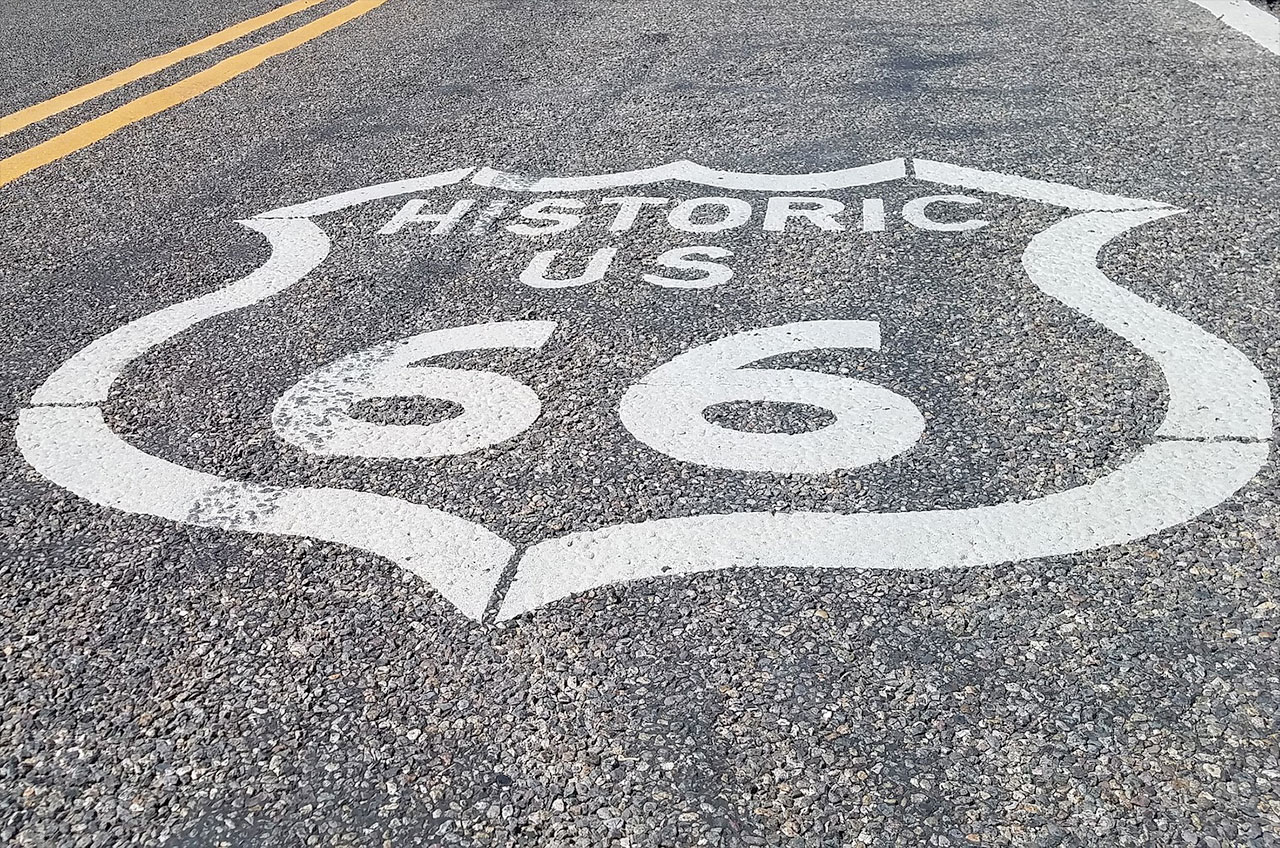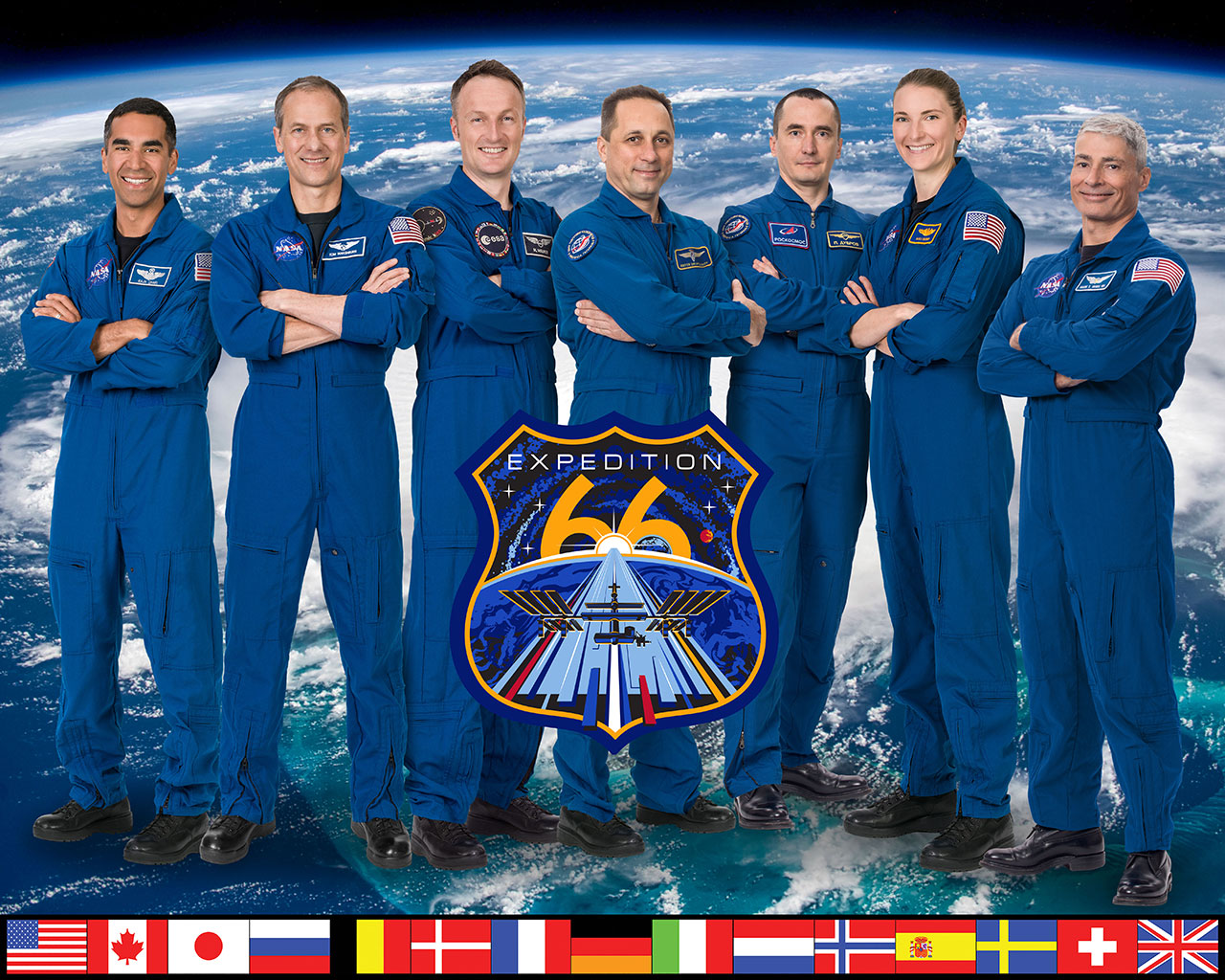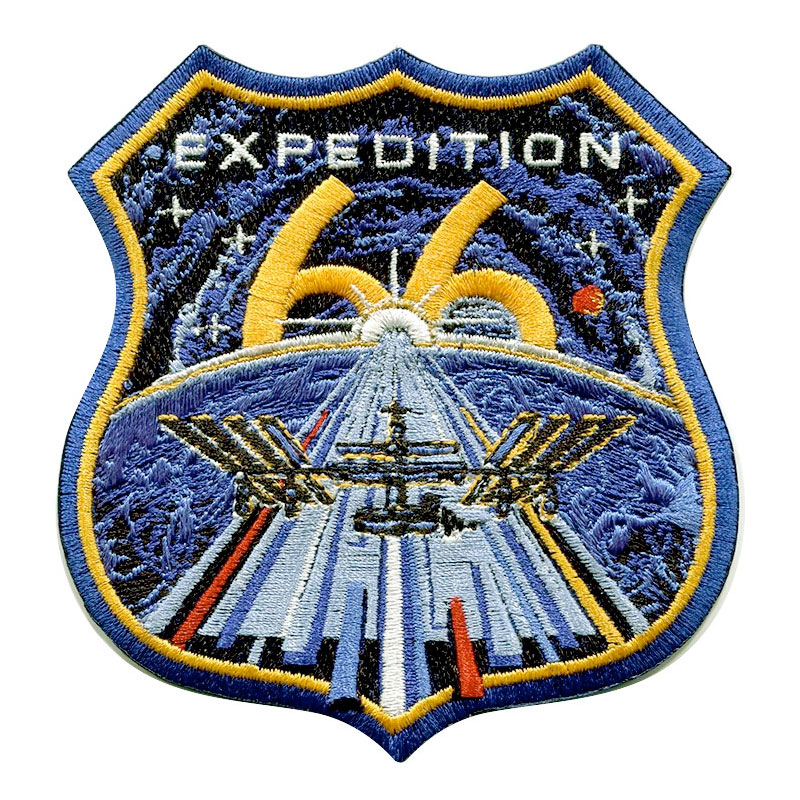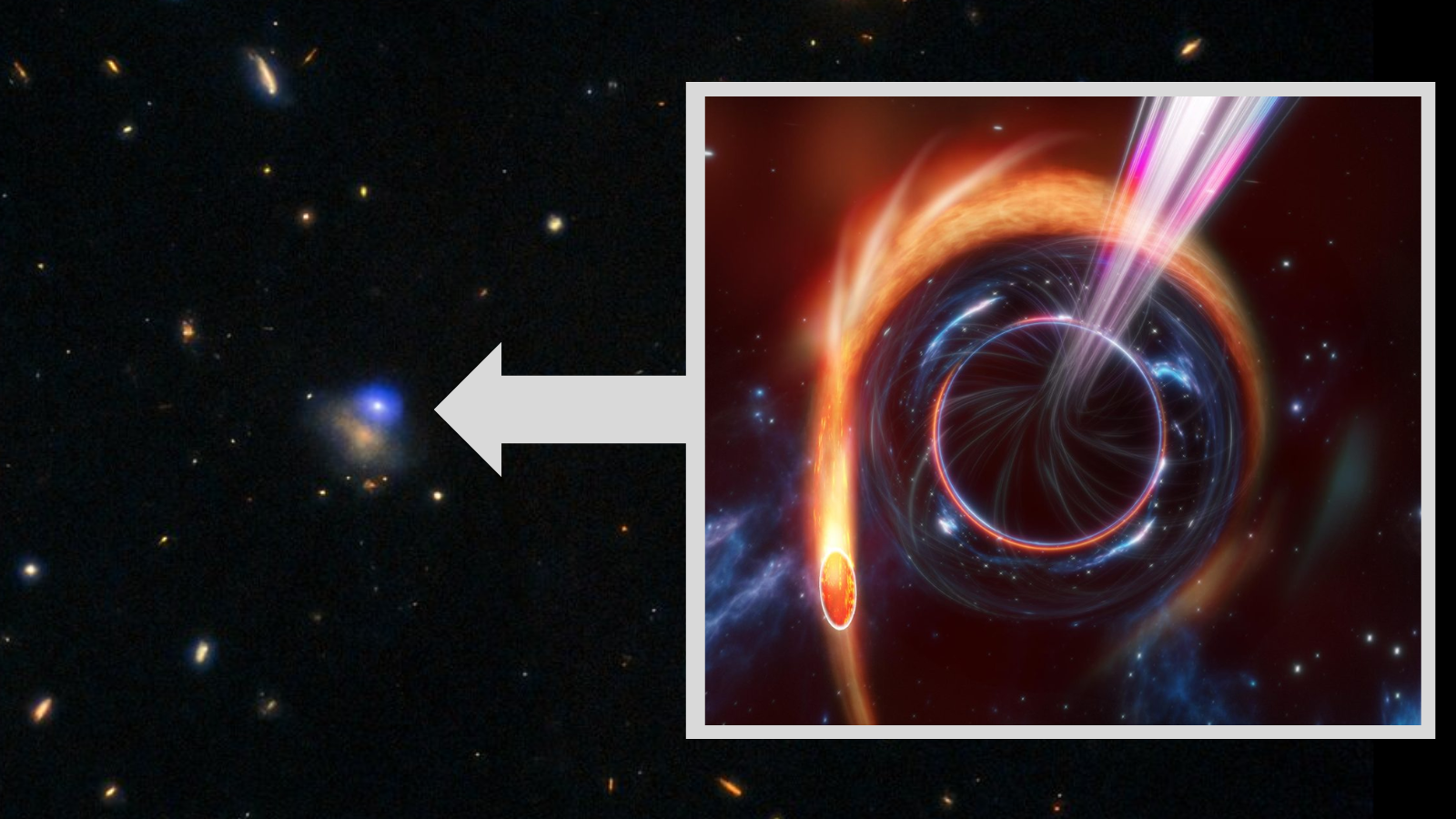New space station 'Route 66' patch hides nod to Marvel 'The Eternals' artist
The Expedition 66 crew patch brings together the "Mother Road" with a Marvel comic book artist.

You can now "get your kicks" — and your Marvel comic book fix — with a new mission patch for the crew of the International Space Station.
The Expedition 66 insignia, which represents the astronauts and cosmonauts now on board and soon to come to the space station, derives its inspiration from a classic American roadway and, in a more subtle nod, the artist behind the latest members of the Marvel Cinematic Universe.
"The idea came from a patch designer who has done a few of the other [crews'] patches in recent years and I liked his approach," said NASA astronaut Tom Marshburn, who with three other crewmates will soon leave Earth on a SpaceX rocket to join the space station's 66th increment.
Live updates: Follow SpaceX's Crew-3 astronaut launch for NASA
'Hip to a timely tip'
"He said, 'Hey, six-six, I like the idea of Route 66," Marshburn said, recalling his conversation with Blake Dumesnil, the Houston-based graphic artist who worked with him to create the Expedition 66 patch, in an interview with collectSPACE..com.
The patch is shaped like a U.S. Highway shield, the same type of sign found along "historic" Route 66, which runs from Chicago, Illinois to Santa Monica, California.

"Growing up around classic cars, collectibles and Americana, I couldn't pass up the opportunity to use the Route 66 sign as a starting point for this design," wrote Dumesnil on Facebook.
Breaking space news, the latest updates on rocket launches, skywatching events and more!
On the emblem, Dumesnil depicted a road that extends from the station to beyond Earth's horizon and into deep space.
"I loved the idea of a journey being just as important as the destination. The ISS is an incredible stop along the road back to the moon and onto Mars!" he wrote.
Now known for its roadside attractions, Route 66 was originally primarily used by Americans migrating west. The 2,448-mile-long (3,940-km) highway — which has been celebrated by pop culture in song ("[Get Your Kicks on] Route 66"), print ("The Grapes of Wrath" by John Steinbeck) and on television ("Route 66" on CBS) — was later designated a National Scenic Byway after being bypassed in 1985.
At first, Marshburn was concerned about referencing Route 66 as it could be seen as "a little bit too American." The patch, after all, was meant to represent the entire crew and during its six-month stretch, Expedition 66 would include six Americans (Shane Kimbrough, Megan McArthur, Mark Vande Hei, Raja Chari, Kayla Barron and Marshburn), two Europeans (Thomas Pesquet, Matthias Maurer), a Japanese (Aki Hoshide) and five Russians (Pyotr Dubrov, Anton Shkaplerov, Oleg Artemyev, Denis Matveev and Sergey Korsakov).

"We have an international crew and Russia had to sign off on [the design], but interestingly, when I passed that idea around to them they said, "Nah, this is an American cultural icon, but we get it, we think it's great [as a symbol of] not just exploration, but commercialization of an otherwise relatively inaccessible area," Marshburn said.
"So in all ways we thought that was really cool," he said. "And I was pleased my crewmates liked it."
Kirby Krackle
Dumensil's roadway on the Expedition 66 patch also serves as a bridge, given the space station's role as a bridge to the future.
"Two future destinations are depicted, the moon resting inside one of the numerals and Mars to the right," reads NASA's official description of the Expedition 66 emblem. "The space station bridges the gap from low-Earth orbit to these distant exploration destinations."
What the agency omits is the inspiration for the bridge.
"I said, 'Hey, one of the most famous bridges that I know of in modern culture is the Asgard bridge,'" said Marshburn, referencing the mythological Bifrost from Norse mythology which has become prominent again due its depiction in Marvel's "Thor" comic books and movies. "So we talked about the rainbow bridge as the perfect way to put in all of the colors of all of the flags for the international partners who will be together on the space station.
Thor, the Marvel superhero and member of "The Avengers," was created by the late artist Jack Kirby. Working under editor Stan Lee, Kirby is also credited with the creation of the Fantastic Four, the X-Men, Hulk and Iron Man, as well as the latest characters to be added to the Marvel Cinematic Universe, the Eternals.
Disney's Marvel Studios is set to release its feature film adaptation of Kirby's "The Eternals" on Nov. 5, starring Kit Harington, Salma Hayek and Angelina Jolie.
Marshburn, who is scheduled to launch on SpaceX's Crew-3 mission and join Expedition 66 on Oct. 31, just a few days before "The Eternals" opens, is a self-professed fan of Kirby's work — as is Dumesnil.

"Marshburn and I are huge fans of the Marvel comics and movies and stylistically we loved artist Jack Kirby's beautiful use of color and shapes," Dumesnil said.
Together they decided to include in the patch a direct reference to Kirby's style.
"If you look it up, there's a reference to the 'Kirby Krackle,' which is a thing. It's an art thing. It was his technique for showing the vastness and energy in space," said Marshburn. "So we put it in the space field — or something reminiscent of it — rather than have it just be black."
Follow collectSPACE.com on Facebook and on Twitter at @collectSPACE. Copyright 2021 collectSPACE.com. All rights reserved.

Robert Pearlman is a space historian, journalist and the founder and editor of collectSPACE.com, a daily news publication and community devoted to space history with a particular focus on how and where space exploration intersects with pop culture. Pearlman is also a contributing writer for Space.com and co-author of "Space Stations: The Art, Science, and Reality of Working in Space” published by Smithsonian Books in 2018.
In 2009, he was inducted into the U.S. Space Camp Hall of Fame in Huntsville, Alabama. In 2021, he was honored by the American Astronautical Society with the Ordway Award for Sustained Excellence in Spaceflight History. In 2023, the National Space Club Florida Committee recognized Pearlman with the Kolcum News and Communications Award for excellence in telling the space story along the Space Coast and throughout the world.

